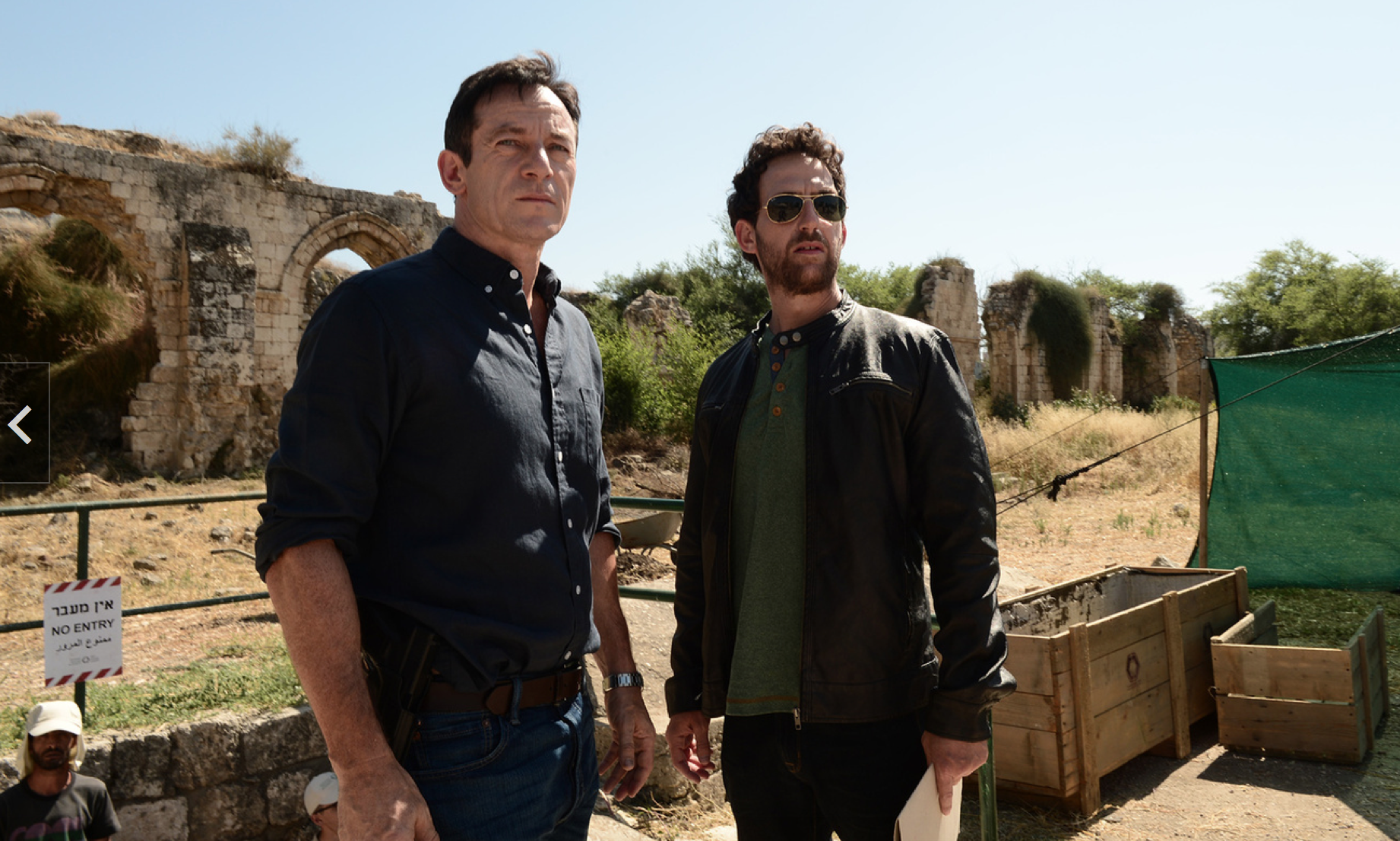No, this is not an advertisement for summer archaeology opportunities.

Essenes, Warren's Shaft, the Temple Mount, Dome of the Rock, the Foundation Stone, Well of Souls, and a red heifer. This is not the normal stuff of network television. Last week, the television show, Dig, ended its first season run of 10 episodes on the USA Network. When the show was first advertised, I was under the impression that it was going to be a miniseries, but evidently, it's going to be an anthology show--changing characters and contexts each season.
The show centers around Peter Connelly (Jason Isaacs), an FBI agent stationed in Jerusalem after facing a recent family tragedy. While investigating a murder, Connelly stumbles across a conspiracy by an extremist group composed of both Christians and Jews whose common agenda could have literal apocalyptic ramifications if successful.
Now, if the above description sounds too sensationalistic, what I really appreciated about the show was that it really did not resort to sensationalism to entertain. Think of it as a DaVinci Code without the preposterous conspiratorial history and animosity toward organized religion. Most of the the series was filmed on location in Israel, and most importantly, archaeology was treated seriously. And if you want to brush up on your Hebrew, biblical or modern, there's lots of it--some with subtitles, some without.
I don't want to give away too many details, but I do recommend watching the first season. You can find most or possibly all episodes on USA's Dig website, and it is also available on iTunes. I have no doubt it will eventually be available on Netflix. There is some adult content that is not central to the storyline, so unfortunately, I cannot recommend it for the whole family.
See also the review from Biblical Archaeology Society, "TV Series 'Dig' Delivers Drama."
Questions, thoughts, comments, rebuttals? Leave them in the comments section.